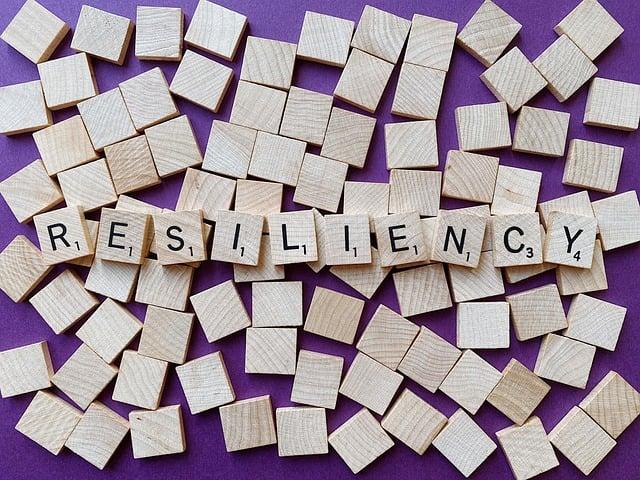In the heart of South Asia, where ancient civilizations have woven a rich tapestry of culture, tradition, and struggle, lies Pakistan—a nation marked by both diversity and complexity. For decades, this resilient country has grappling with a persistent and daunting challenge: terrorism. As echoes of conflict reverberate through its valleys and urban landscapes, Pakistan’s journey has transformed into a poignant narrative of endurance and adaptation. This article seeks to explore the multifaceted dimensions of resilience and response within this vibrant society, examining how a nation, often defined by its trials, rises to confront the specter of terror with unwavering resolve. Through the lens of history, policy, and the indomitable spirit of its people, we delve into the ongoing battle against terrorism that not only shapes Pakistan’s security landscape but also influences its identity and future aspirations. Join us as we navigate the complexities of this enduring struggle, illuminating the stories of bravery, strategy, and hope that emerge from the shadows of adversity.
Understanding the Roots of Extremism in Pakistans Socio-Political Landscape
At the heart of Pakistan’s challenges with extremism lies a complex interplay of historical, social, and political factors. Historical grievances stemming from partition and subsequent conflicts have paved the way for sentiments of alienation among various communities. Simultaneously, the political landscape, characterized by instability and corruption, has often left marginalized groups susceptible to extremist ideologies. Many see these movements as a way to voice their discontent, drawing from narratives that promise empowerment and social justice, albeit through violent means. Understanding these underlying issues is essential for addressing the root causes of radicalization, rather than merely focusing on the symptoms.
Moreover, the socio-economic fabric of Pakistan plays a pivotal role in fostering an environment where extremism can flourish. Poverty, lack of education, and limited job opportunities contribute to disenfranchisement, making young individuals more vulnerable to recruitment by extremist organizations. It’s critical to acknowledge that extremism thrives in areas where the state fails to provide basic needs and security. To combat these trends, Pakistan must prioritize comprehensive strategies that enhance social cohesion and economic development. Engaging local communities and addressing their grievances can serve as a powerful deterrent against radicalization, fostering a resilient society capable of resisting extremist narratives.
| Factors | Impact on Extremism |
|---|---|
| Historical Grievances | Fosters feelings of alienation |
| Political Instability | Undermines trust in government |
| Poverty | Creates vulnerability to recruitment |
| Lack of Education | Limits critical thinking and resilience |
| Social Cohesion | Strengthens community resistance |

Strengthening Counter-Terrorism Strategies: Lessons Learned and Best Practices
The fight against terrorism in Pakistan has evolved through years of trial and error, leading to a series of innovative strategies. In aiming to bolster national security, the government and military have adopted a multifaceted approach that emphasizes not just military action, but also community engagement and intelligence sharing. Key lessons learned from past experiences have shaped these strategies, highlighting the necessity of collaboration among various sectors, including law enforcement, civil society, and local communities. By involving citizens in counter-terrorism efforts, a sense of ownership develops, fostering resilience against extremist ideologies.
Moreover, the importance of capacity building within law enforcement agencies cannot be overstated. Continuous training in counter-terrorism techniques, cyber security, and crisis management has proven essential in adapting to the ever-evolving threats posed by terrorist organizations. The integration of technology, such as data analytics and surveillance tools, has enhanced operational efficiency and effectiveness. Furthermore, creating awareness through public education initiatives serves to dispel rumors and misinformation, further engaging the populace in the national effort against terrorism. Below is a summary of best practices implemented in recent years:
| Best Practice | Description |
|---|---|
| Community Policing | Fostering trust between law enforcement and citizens. |
| Data-Driven Operations | Utilizing analytics to inform strategic decisions. |
| Counter-Radicalization Programs | Engaging youth to detour extremist pathways. |
| Collaboration with NGOs | Partnering with non-profits for outreach and education. |

Empowering Communities: Grassroots Initiatives for Resilience Building
Across the diverse landscapes of Pakistan, communities are rallying together to cultivate resilience through grassroots initiatives aimed at combating the ongoing waves of terrorism. These local movements, often born from adversity, emphasize the power of collective action in creating a secure environment for future generations. They focus on a multifaceted approach that includes education, community engagement, and mental health support. Key elements of these initiatives include:
- Education and Vocational Training: Empowering youth with skills to foster employment opportunities.
- Community Dialogue: Facilitating conversations that address grievances and promote understanding.
- Support Networks: Establishing systems of emotional and psychological support for those affected by terrorism.
In addition to these efforts, various NGOs and community organizations are working tirelessly to create a framework of resilience that allows communities to thrive despite fears of violence. They implement innovative strategies to ensure that residents not only feel safe but are also equipped to respond effectively in times of crisis. Examples of project outcomes include:
| Project Name | Location | Impact |
|---|---|---|
| Youth Empowerment Program | Khyber Pakhtunkhwa | Increased employment by 30% |
| Community Dialogue Initiatives | Punjab | Reduced conflicts by 25% |
| Mental Health Awareness Drives | Sindh | Improved accessibility to services |

The Role of International Collaboration in Pakistans Fight Against Terrorism
International collaboration has emerged as a crucial element in Pakistan’s multifaceted strategy to combat terrorism. Through partnerships with various countries and global organizations, Pakistan has gained access to vital intelligence, resources, and training programs, enhancing its counter-terrorism capacity. Joint operations and intelligence-sharing initiatives have significantly improved situational awareness, enabling security forces to respond swiftly to threats. Key alliances have been formed with countries such as the United States, China, and regional neighbors, fostering a collective international effort to dismantle terrorist networks that operate beyond borders.
Furthermore, collaborative frameworks like the Global Coalition Against ISIS and regional platforms such as SAARC have allowed Pakistan to engage in diplomatic dialogues focused on counter-terrorism. These engagements facilitate not only enhanced security measures but also promote socio-economic development in affected regions, which is crucial for undermining the appeal of extremist ideologies. By participating in trainings, workshops, and police exchanges, Pakistani law enforcement agencies are better equipped to handle complex terrorist tactics, thereby leading to more effective responses. The importance of international collaboration in this context cannot be understated, as it lays the groundwork for sustained peace and stability in the region.
Closing Remarks
As the sun sets over the plains of Pakistan, casting long shadows that stretch across its rich and complex landscape, it is clear that the nation stands at a crossroads—an intricate tapestry woven with threads of resilience, struggle, and hope. The battle against terrorism is not merely a contest of arms; it is a testament to the spirit of a people who have faced the specter of violence with unwavering resolve.
In every city, in every village, the echoes of history resonate with stories of courage and sacrifice, illustrating how a nation can rise in the face of adversity. While the scars of the past remain, they serve as reminders of the sacrifices made and the lessons learned along the way. With every challenge faced, Pakistan has fortressed its commitment to peace and stability, continually redefining its narrative in the global landscape.
As we conclude this exploration of Pakistan’s ongoing battle against terrorism, let us remember that the journey towards resilience is not linear. It is a dynamic process, shaped by the collective will of its citizens, the strength of its institutions, and the support of a global community. The path ahead may be fraught with obstacles, but as history has demonstrated, this nation’s spirit is unyielding.
In the face of uncertainty, one thing remains clear: hope shines brightly at the end of every tunnel of darkness. As Pakistan navigates its multifaceted challenges, the resilience of its people, bolstered by dialogue and cooperation, offers a beacon of possibility—a promise that the future can be forged from the lessons of the past, paving the way for a more peaceful tomorrow.



